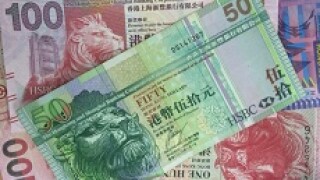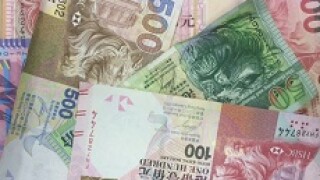Hong Kong dollar
-
DBS launched syndication for a HK$1.2bn ($153.7m) borrowing by photovoltaic power plant developer Beijing Enterprises Clean Energy last week.
-
The sub-underwriting phase of a HK$28bn ($3.6bn) financing to support the take private of Hong Kong-listed footwear company Belle International Holdings has wrapped up, with nine lenders joining original mandated lead arranger and bookrunner (MLAB) Bank of America Merrill Lynch (BAML).
-
Chinese real estate developer Times Property has hit the loan syndications market for a dual currency financing, about two months after issuing an offshore bond.
-
Transport and tourism services provider Zhuhai Holdings Investment has returned to the syndicated loan market after two years for a HK$1.5bn ($192m) borrowing.
-
Chinese firm Essence International Financial Holdings has approached lenders for a HK$1bn ($128m) borrowing.
-
Chinese real estate developer Agile Group has sealed a HK$624m ($80m) financing with one bank.
-
A HK$28bn ($3.6bn) financing to support the take private of Hong Kong-listed footwear company Belle International Holdings is open for participation at the sub-underwriter level.
-
Syndication of a HK$7.991bn ($1.027bn) loan for a subsidiary of Hong Kong conglomerate Goldin Financial Holdings is set to wrap up soon, with the money to be used to develop a residential complex in the city’s Kowloon area.
-
Emperor International Holdings, Xinjiang Guanghui Industry Investment (Group) Co and Zhuhai Huafa Group Co sealed new dollar deals on Thursday, going into their respective transactions with books fully covered.
-
Huarong Investment Stock Corp is in the market for a HK$3bn ($386m) dual currency syndicated term loan with Credit Suisse at the helm.
-
Hong Kong-listed Fortune Real Estate Investment Trust has tied up a HK$1.2bn ($154m) syndicated loan arranged by Sumitomo Mitsui Banking Corp.
-
China Development Bank became the latest name to take advantage of a liquidity-abundant market, snapping up $3bn-equivalent from three floating rate tranches in two currencies — in one of the largest FRN trades out of Asia.









